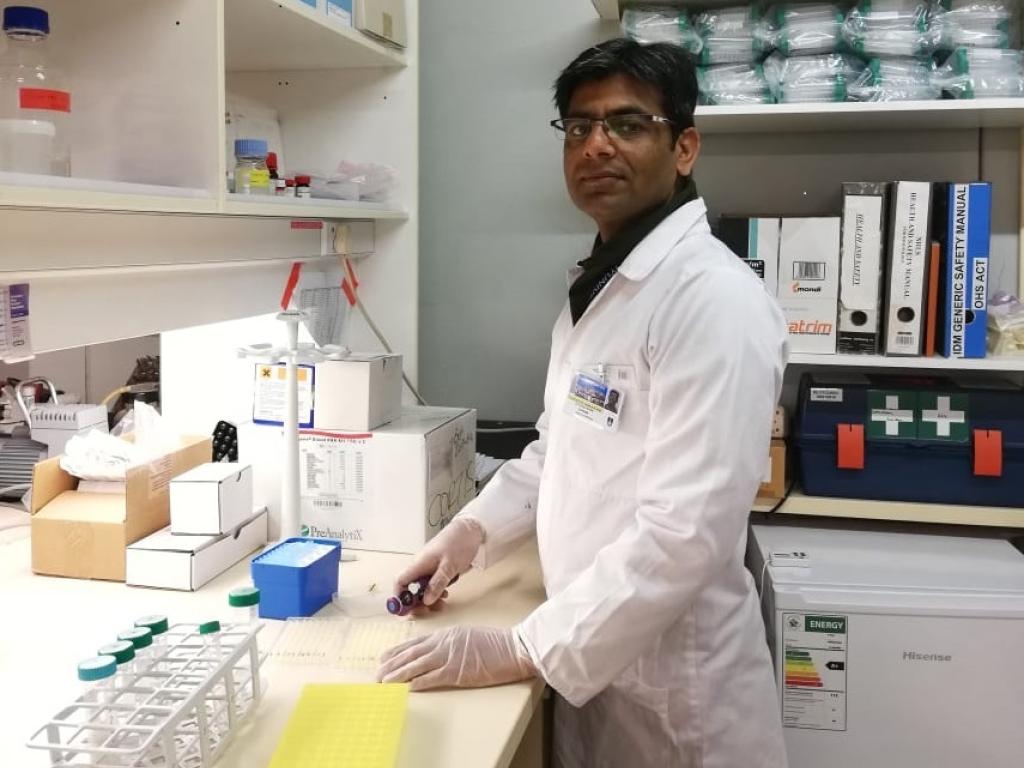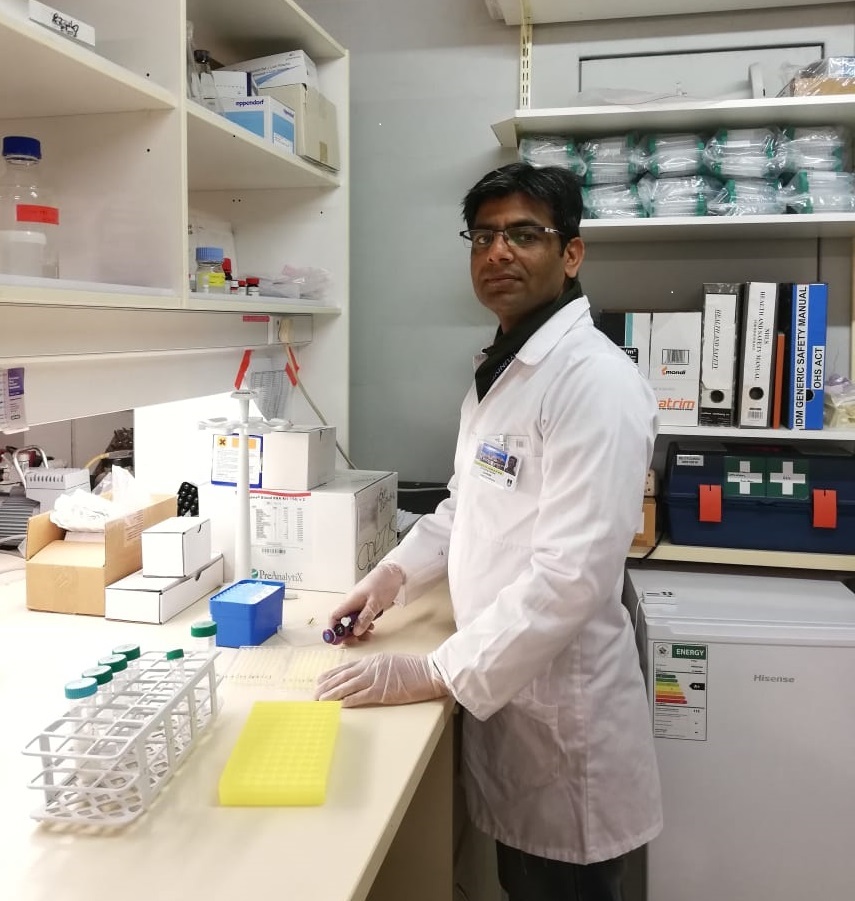Q&A with new Associate Member Dr Suraj Parihar


Why did you get into research?
One of the major reasons was the freedom to do peruse I want, and support given to me by my parents to study. I’ve also been fortunate in terms of the freedom to pursue my research interests which I’ve received from the people I’ve worked with; my mentors and my supervisors. Also, my first appointment was in a clinical trial, I got experience in working with TB patients. Seeing how they were suffering physically and financially because of the disease was eye-opening – being in the clinic and interacting with patients has motivated me to be in research. Initially, I got into answering research questions, but I soon learnt that you can go deeper into trying to understand how something is happening at a cellular level. That going deeper that was my motivation. Unlike lecturing, Research challenges me every day. Each day I can try to answer a new question or better understand– discover a new finding, is more fulfilling. I don’t think I’d survive in any other career where one is not free.
Why focus on TB / why this specialisation?
When I first joined the research space it was a TB lab and my all training was with Mycobacterium tuberculosis. I realised it was an interesting pathogen to work with. Especially when considering how over the centuries the bacteria has not died off but evolved with us. Instead, it finds new ways to survive within our hostile cellular environment and make one sick. It’s fascinating to work with.
What should people know about TB that isn’t necessarily common knowledge?
Everyone is latently infected with TB. So, it’s important not to compromise your immune system in order not to activate the TB. Don’t let your immune system weaken.
How would you say your work impacts society?
The translation is always a priority of the work I start. We try to use drugs that are already on the market. Find the gene/targets which can be specifically inhibited or activated.You think and you answer in terms of helping the community and reducing their suffering and burden on society at large.
Practically – what does the accolade of becoming an Associate Member, mean for your work?
IDM is a good platform to showcase your research, direction, and interests. By increasing the visibility of your work it helps you get recognition and lays the foundation for possible national and international collaborations. Importantly, it also offers a chance to appreciate the talented people in your team. It’s the people working in the lab who are responsible for getting the quality research. My previous supervisors offered me freedom with my work and I try do the same for my students. Also, the accolade also doesn’t hurt my CV.
What do you hope to achieve, career-wise, in the long term?
I want to build a good, dynamic research team which shares similar interests to the ones I want to pursue. However, not restricting but I would also encourage them to think freely and purse different directions while working under the umbrella. I’d like to establish an independently-funded lab, which strong interest on alleviating the impact of TB on society by innovative and alternative therapies.
What do you enjoy about your work?
The new results. It opens you up to more questions about how things work. You’re also able to translate the work from the lab to the human – so from bench to bedside. And that’s even more rewarding. It’s great to be able to understand how something works in a biological system; immune response, genes – in order to help you protect people.
Advice to early-career researchers looking to follow in similar footsteps?
I’d encourage them to get involved in grant writing and learn to write their own ideas. I’d recommend that they try to get small funding opportunities – even as a co-investigator. Choose a good mentor – someone who wants to see you succeed. It’s important to move independently from a post-doc as soon as one can to develop your own research strengths; to show how you’re different from your mentors/supervisor; to find your own path at the same time maintaining long-term collaborations with mentors..
Try to supervise students officially. Things like how many people you’ve supervised/trained will matter when applying for early-career jobs. During my PhD and Post Doc I was always co-supervising Honours students, and subsequently supervising Masters and PhD students.
One for the kids: Explain what you do to a five-year old:
TB is a disease which makes you sick upon inhaling bad air. Therefore, one should try to live in a house with proper ventilation. Once, infected It can kill you if you don’t get medication for it. My team makes mice sick with TB to try understand what happens to our immune system. Although some things won’t work the exactly the same between the mouse and the human. Because of this, we must move back and forth between the two to ultimately try help those who are infected with the disease.
I also participate in a School Outreach Programme where we show students how people get infected with Listeria. You can see the fascination in their eyes when they see how the cell looks – how bacteria moves within the cell and outside as colony.
Read more about Suraj here.
